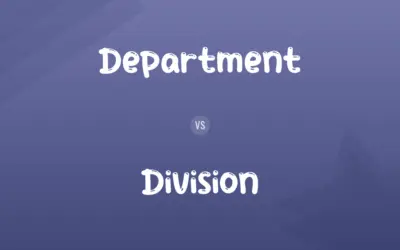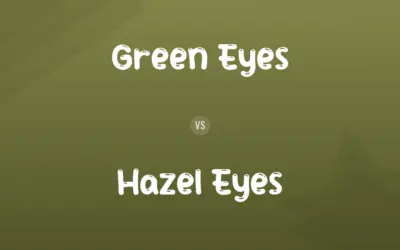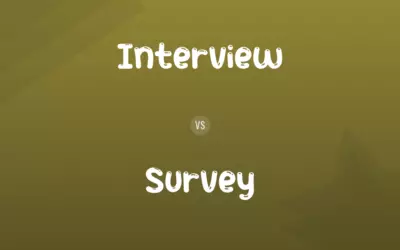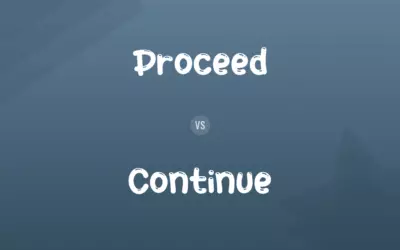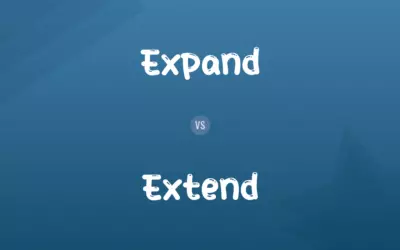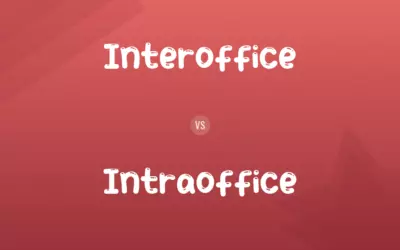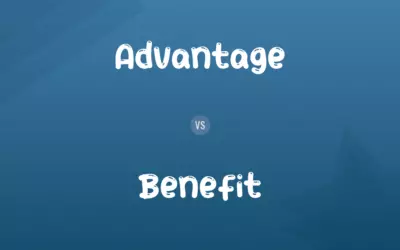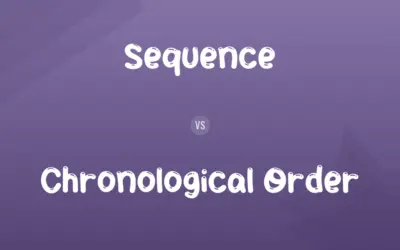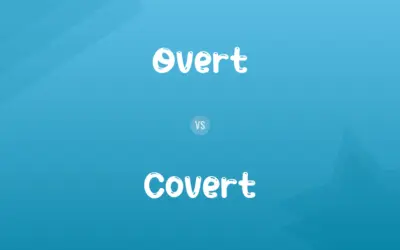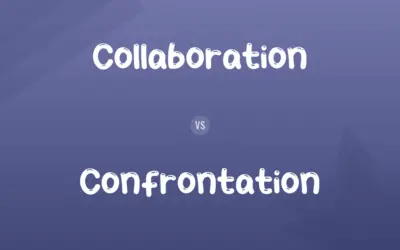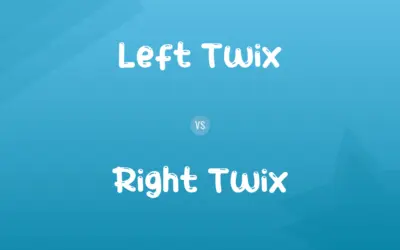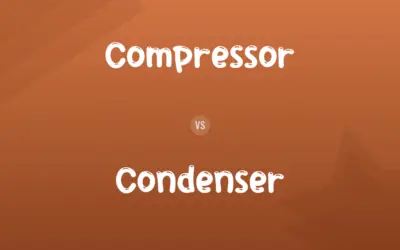Since vs. Sense: Difference and Comparison
Edited by Muazma Batool — By Muneeza Rehman — Published on April 21, 2024
"Since" is used to refer to the time from a specific past point until now or to indicate causation, while "sense" relates to the perception or understanding of something through the senses or intellectually.
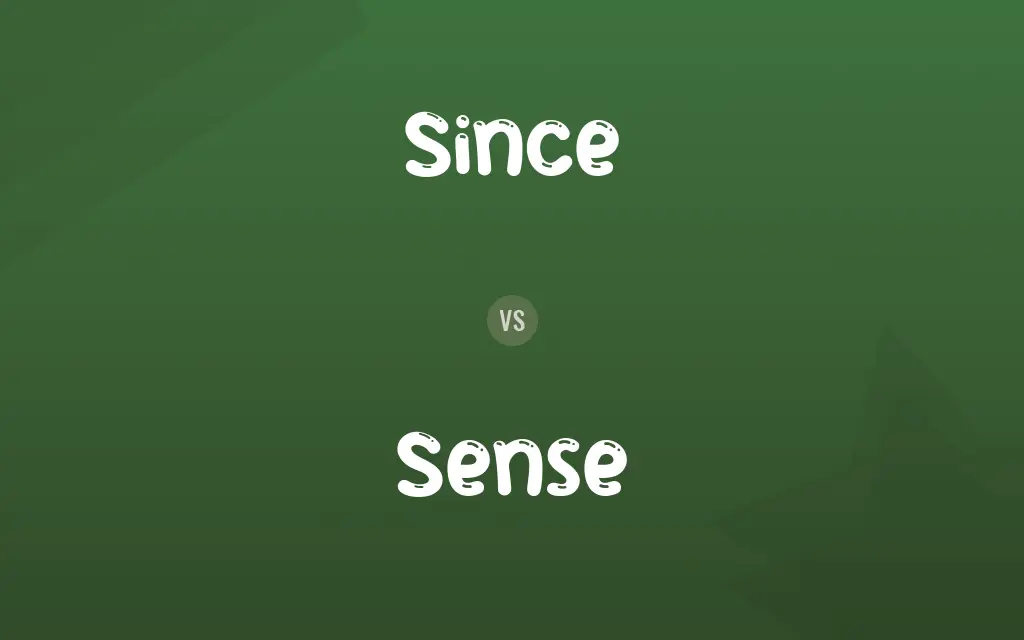
Difference Between Since and Sense
"Since" functions primarily as a preposition, conjunction, or adverb, focusing on time or causation. As a preposition, it specifies the starting point of a period ("since January"). As a conjunction, it introduces a reason or cause ("since you asked"). As an adverb, it indicates "from then until now" ("I haven't seen him since"). "Sense," on the other hand, is a noun or verb dealing with perception. As a noun, it refers to any of the faculties by which stimuli from outside or inside the body are received and felt ("sense of smell"). As a verb, it means to perceive or become aware of something ("she sensed his disappointment").
Muneeza Rehman
Apr 21, 2024
The use of "since" requires a reference to time or causation, making it essential in constructing sentences that relate actions or states to specific times or reasons. "Sense," however, is rooted in the experience of perceiving or understanding, playing a critical role in discussions about human or animal perception and intuition. It is also used metaphorically to denote a feeling or hunch ("a sense that something was wrong").
Muneeza Rehman
Apr 21, 2024
In linguistic terms, "since" connects parts of a sentence by specifying when or why something happened, requiring an understanding of temporal or causal relationships. "Sense," however, invites exploration into the realms of physical, emotional, and intellectual experiences, often requiring context to clarify whether it's about physical perception or a more abstract understanding.
Muneeza Rehman
Apr 21, 2024
Both "since" and "sense" are versatile in English language usage, but they cater to different aspects of communication. "Since" enriches language with temporal and causal nuances, while "sense" deepens the expression of perception and understanding, showcasing the richness and complexity of English vocabulary.
Jonathan
Apr 21, 2024
Since vs. Sense Comparison Chart
Examples
"Since yesterday," "since you left"
"Sense of taste," "to sense danger"
Muneeza Rehman
Apr 21, 2024
Since vs. Sense Definitions
◉Since
As a conjunction meaning because.
Since it's raining, we will cancel the picnic.
Muneeza Rehman
Feb 21, 2024
◉Sense
Noun, one of the faculties of perception.
The sense of smell is very acute in dogs.
Muneeza Rehman
Feb 21, 2024
◉Since
To introduce a causal relationship.
Since he forgot his wallet, he couldn't pay.
Jonathan
Feb 21, 2024
◉Sense
Verb, to perceive or detect.
She could sense his reluctance to leave.
Muneeza Rehman
Feb 21, 2024
◉Since
As a preposition indicating the start of a period.
I have been working here since 2010.
Muneeza Rehman
Feb 21, 2024
◉Sense
Intellectual or practical understanding.
A sense of humor is important in life.
Elijah
Feb 21, 2024
◉Since
Relating to time or causation.
She's been happier since moving to the countryside.
Muneeza Rehman
Feb 21, 2024
◉Sense
Used to describe a natural or intuitive way of perceiving.
Animals can sense an earthquake before it happens.
Leo
Feb 21, 2024
◉Since
From then until now or between then and now
They left town and haven't been here since.
Muneeza Rehman
Feb 20, 2024
◉Sense
Any of the faculties by which stimuli from outside or inside the body are received and felt, as the faculties of hearing, sight, smell, touch, taste, and equilibrium.
Muneeza Rehman
Feb 20, 2024
Since vs. Sense Frequently Asked Questions
Can "since" and "sense" be used interchangeably?
No, they serve different purposes and meanings in sentences.
Muneeza Rehman
Apr 21, 2024
Is "sense" always related to physical perceptions?
No, "sense" can also refer to emotional or intellectual perceptions and understandings.
Levi
Apr 21, 2024
How do you use "since" to indicate causation?
By introducing a cause or reason for an action, e.g., "Since you asked, I'll tell you."
Olivia
Apr 21, 2024
How does "since" function in a sentence?
It can act as a preposition, conjunction, or adverb, linking actions to time or explaining reasons.
Muneeza Rehman
Apr 21, 2024
What is the difference in use between "since" and "sense"?
"Since" is used to discuss time periods or reasons, while "sense" refers to perception or understanding.
Muneeza Rehman
Apr 21, 2024
What's a simple way to remember the difference between "since" and "sense"?
Remember that "since" relates to time and reasons, while "sense" deals with perception and understanding.
Levi
Apr 21, 2024
What does "sense" convey in communication?
It conveys the act of perceiving or the ability to understand or grasp something.
Levi
Apr 21, 2024
Can "sense" be used in a figurative way?
Yes, it often denotes a feeling or intuition about something, not just physical perception.
Muneeza Rehman
Apr 21, 2024
How does the usage of "sense" enrich language?
It adds depth by allowing the expression of complex perceptions and intuitive understandings.
Muneeza Rehman
Apr 21, 2024
What is a common mistake when using "since"?
Confusing its use as a time marker with its causal meaning, or using it where "because" might be more appropriate.
Lucas
Apr 21, 2024
Content Creators
Written by
Muneeza RehmanAt Comparisons.wiki, Muneeza skillfully navigates the vast sea of information, ensuring clarity and accuracy as the lead content editor. With a keen eye for detail, she curates every comparison to enlighten and engage readers.
Edited by
Muazma BatoolAs a content editor, Muazma Batool is not just a grammar guru but a creative mastermind who breathes life into every word. With an eagle eye for detail and a passion for storytelling, she transforms bland text into engaging content that captivates audiences and drives results.





